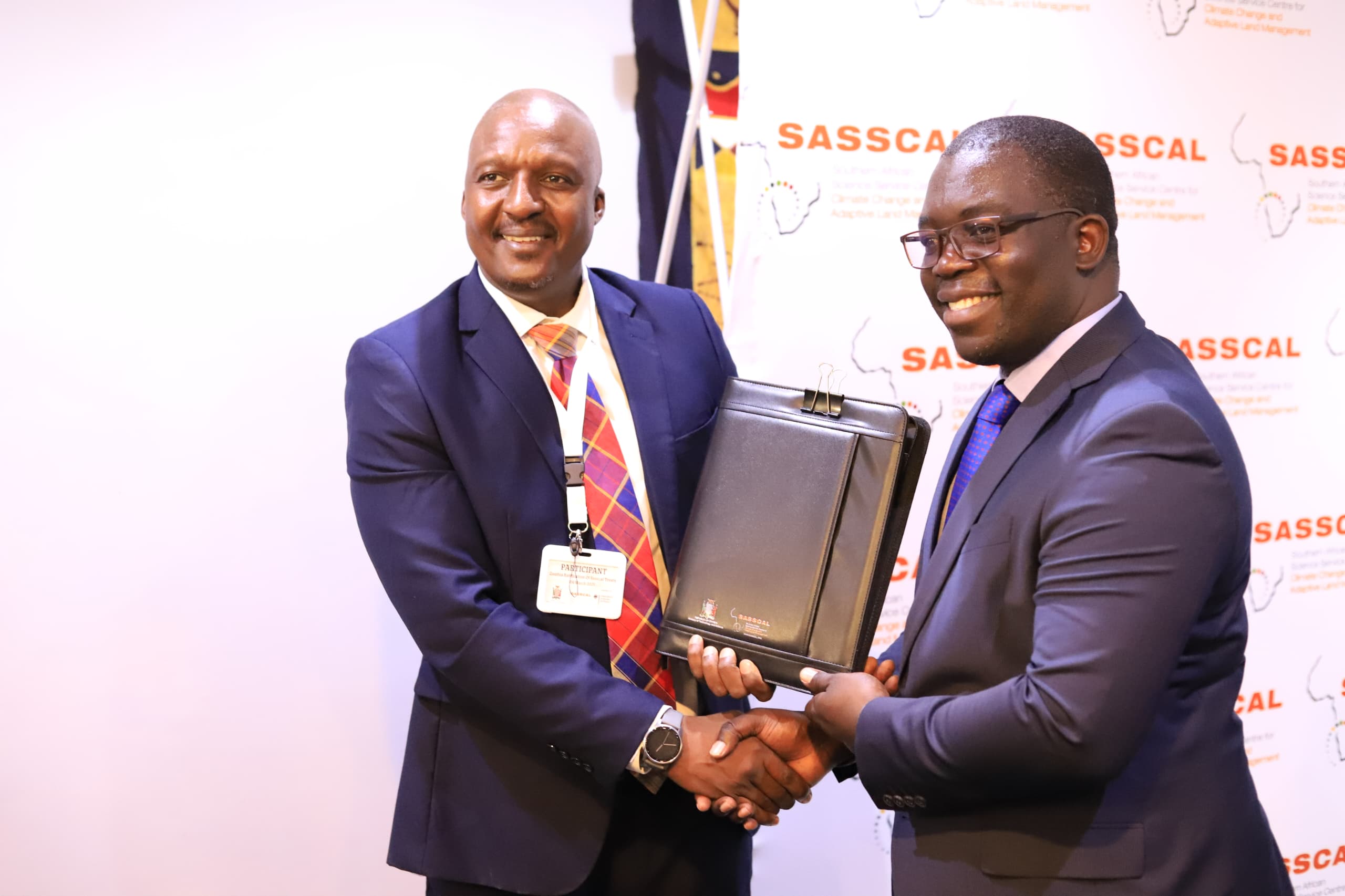Reported by: The Agency Media.
Date: 4th March, 2025.
Lusaka, Zambia.
In a significant step toward advancing climate science and regional cooperation, Zambia has officially ratified the Treaty for the Southern African Science Service Centre for Climate Change and Adaptive Land Management (SASSCAL) and launched the SASSCAL Weather Net (WeNET) Project. This milestone underscores the country’s commitment to leveraging scientific research in mitigating the escalating impacts of climate change.
The ceremony, held at the Radisson Blu Hotel in Lusaka, brought together key stakeholders, including Hon. Chipoka Mulenga, Acting Minister of Technology and Science, diplomats, and representatives from scientific and environmental institutions. The event marked a pivotal moment in Zambia’s climate strategy, reinforcing its role as a regional leader in climate adaptation and sustainability.
Delivering the keynote address, Hon. Chipoka Mulenga highlighted the urgent climate risks facing Zambia, including erratic rainfall patterns, prolonged droughts, and their cascading effects on agriculture and energy security. He stressed the government’s determination to integrate scientific research into national policy, ensuring that decisions are based on solid data and innovative solutions.
“The ratification of this treaty is a testament to Zambia’s commitment to climate science, regional cooperation, and sustainable development,” he stated.
Representing the SASSCAL Governing Board, Ms. Alexandria Angala emphasized Zambia’s ratification as a critical step in strengthening climate science collaboration across Southern Africa. She outlined some of SASSCAL’s contributions to Zambia, including:
- Funding 14 major research projects focused on climate resilience and environmental sustainability.
- Investing over €4 million in climate research and academic scholarships, empowering local scientists and institutions.
- Providing technical and financial support to Zambian institutions developing sustainable climate mitigation strategies.
With Zambia’s formal inclusion in the SASSCAL Treaty, the country is now strategically positioned to access international climate financing, enhance scientific partnerships, and expand research-driven climate solutions.
As part of its commitment to climate adaptation, Zambia also launched the WeNET Project, an initiative aimed at upgrading 15 automatic weather stations in partnership with Zambia Meteorological Services. These upgraded stations will enhance real-time climate monitoring, improve disaster preparedness, and support data-driven decision-making for agricultural planning, water resource management, and infrastructure development.
The project is expected to play a crucial role in strengthening Zambia’s climate resilience, providing more accurate and localized weather forecasts, and enhancing early warning systems for extreme weather events.
Zambia’s ratification of the SASSCAL Treaty and the launch of the WeNET Project signal a new chapter in the country’s climate response strategy. Experts believe these developments will accelerate climate research, foster international collaboration, and enhance Zambia’s ability to adapt to and mitigate climate change challenges.
With climate change posing an increasing threat to food security, water availability, and economic stability, Zambia’s proactive approach underscores its commitment to a sustainable and resilient future—not only for itself but for the entire Southern African region.
The Agency.

